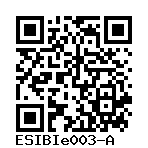HES-3, hES 3
ESIBIe003-A
General
Donor Information
General Donor Information |
|
| Sex | female |
Phenotype and Disease related information (Donor) |
|
| Diseases | No disease was diagnosed.
|
Other Genotyping (Donor) |
|
| Is there genome-wide genotyping or functional data available? |
No
|
Donor Relations |
|
| Other cell lines of this donor | |
External Databases (Donor) |
|
| BioSamples | SAMEA104620499 |
Ethics
| Was the embryo established purely for research purposes? | Yes |
| Have both parents consented to the use of the embryo for ESC derivation? | No |
| Has informed consent been obtained from the donor of the embryo/tissue from which the pluripotent stem cells have been derived? | Yes |
| Was the consent voluntarily given? | Yes |
| Has the donor been informed that participation will not directly influence their personal treatment? | Yes |
| Can you provide us with a copy of the Donor Information Sheet provided to the donor? | No |
| Do you (Depositor/Provider) hold the original Donor Consent Form? | No |
| If you do not hold the Donor Consent Form, do you know who does? | Yes |
| Alternatives to consent are available? | Yes |
| Alternatives to consent | A local ethics committee at the University Leiden provided consent to use the line for the proposed research, including its derivatives. |
| Alternative consent approval number | The line was NIH registered until 2009 and not resubmited afterwards |
| Has the donor agreed to be re-contacted? | Unknown |
| Has the donor been informed about how her/his data will be protected? | No |
| Please indicate whether the data associated with the donated material has been pseudonymised or anonymised. | anonymised |
| Does consent explicitly allow the derivation of pluripotent stem cells? | Yes |
| Does consent prevent CELLS DERIVED FROM THE DONATED BIOSAMPLE from being made available to researchers anywhere in the world? | Yes |
Does consent permit research by | |
| an academic institution? | Yes |
| How may genetic information associated with the cell line be accessed? | No information |
| Will the donor expect to receive financial benefit, beyond reasonable expenses, in return for donating the biosample? | No |
| Has a favourable opinion been obtained from a research ethics committee, or other ethics review panel, in relation to the Research Protocol including the consent provisions? | Yes |
| Name of accrediting authority involved? | |
| Approval number | |
| Has a favourable opinion been obtained from a research ethics committee, or other ethics review panel, in relation to the PROPOSED PROJECT, involving use of donated embryo/tissue or derived cells? | No |
hESC Derivation
| Date of derivation | 2018-06-07 |
| Embryo stage | Blastula with ICM and Trophoblast |
| Supernumerary embryos from IVF treatment? |
Yes
|
| PGD Embryo? |
No |
| ZP removal technique | Enzymatic |
| Cell isolation | Immunosurgery |
| Cell seeding | Isolated ICM |
Culture Conditions
| Feeder cells |
mouse embryonic fibroblast cell Cellfinder Ont Id: EFO_0004040 |
||||||
| Passage method | Enzymatically and Mechanically | ||||||
| Medium |
Other medium:
Base medium: High glucose DMEM
Main protein source: Fetal bovine serum Serum concentration: 20 % Supplements
|
Characterisation
Analysis of Undifferentiated Cells
| Marker | Expressed | Immunostaining | RT-PCR | Flow Cytometry | Enzymatic Assay | Expression Profiles |
| GCTM2 |
Yes |
|
||||
| SSEA-3 |
Yes |
|
|
|||
| SSEA-4 |
Yes |
|
|
|||
| TRA 1-60 |
Yes |
|
|
|||
| DNMT3B |
Yes |
|
||||
| GABRB3 |
Yes |
|
||||
| GDF3 |
Yes |
|
||||
| NANOG |
Yes |
|
||||
| POU5F1 (OCT-4) |
Yes |
|
||||
| ZFP42 (REX-1) |
Yes |
|
||||
| SOX2 |
Yes |
|
||||
| TDGF1 |
Yes |
|
||||
| Alkaline Phosphatase |
Yes |
|
||||
| TRA 1-81 |
Yes |
|
Differentiation Potency
Genotyping
Karyotyping (Cell Line) |
|
| Has the cell line karyotype been analysed? |
Yes
46XX
Passage number: 19
|
Other Genotyping (Cell Line) |
|


Login to share your feedback, experiences or results with the research community.